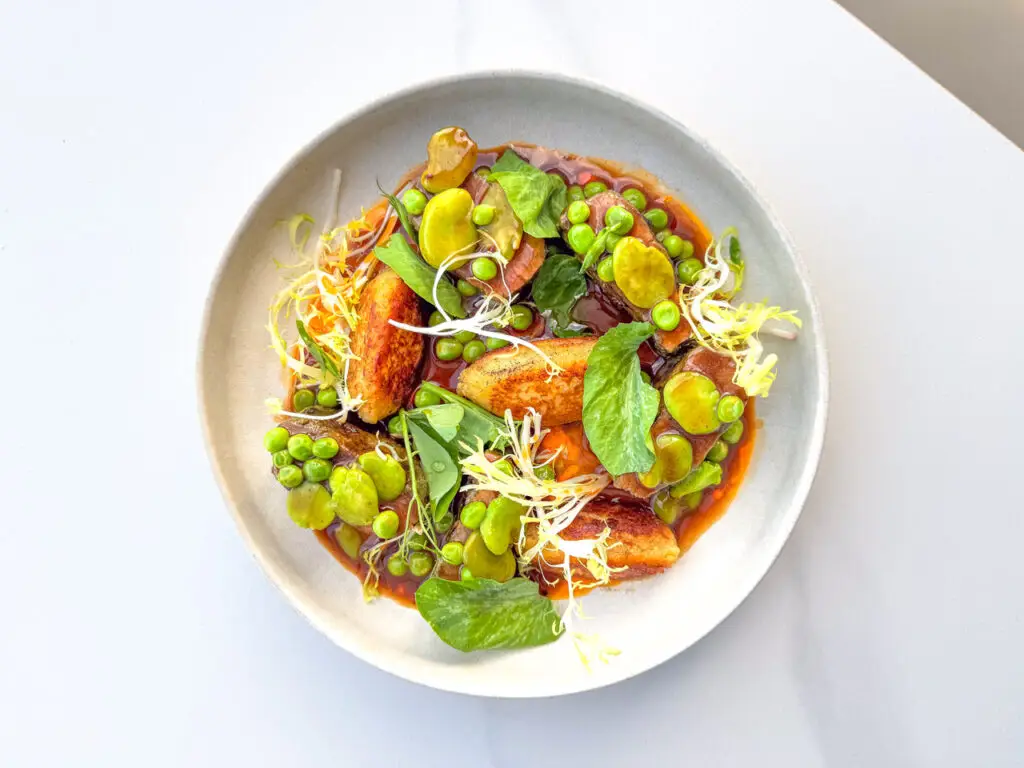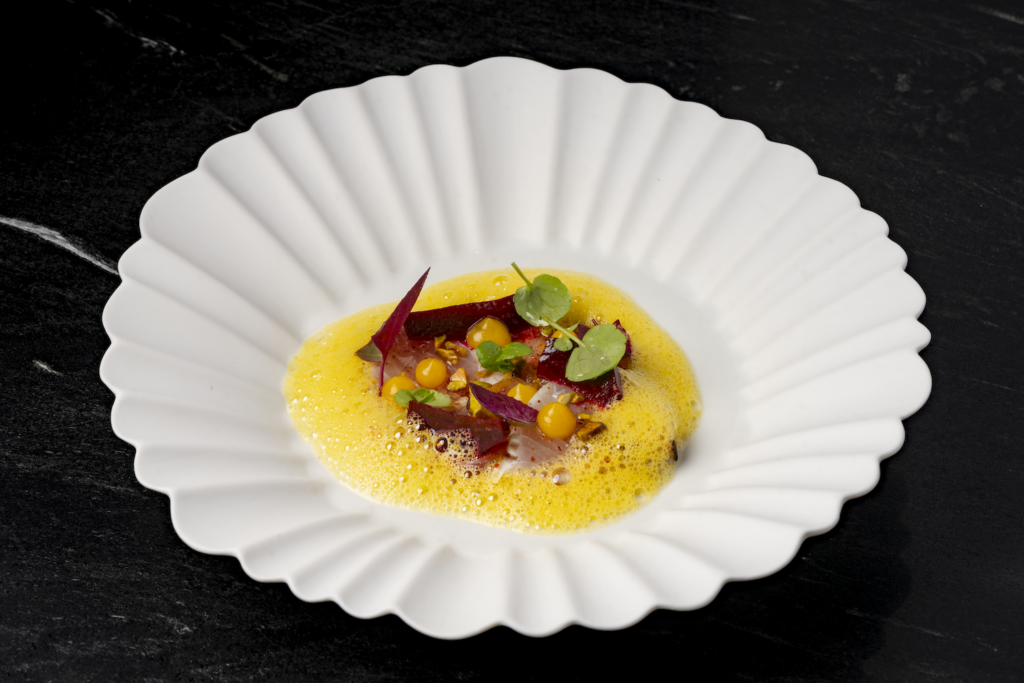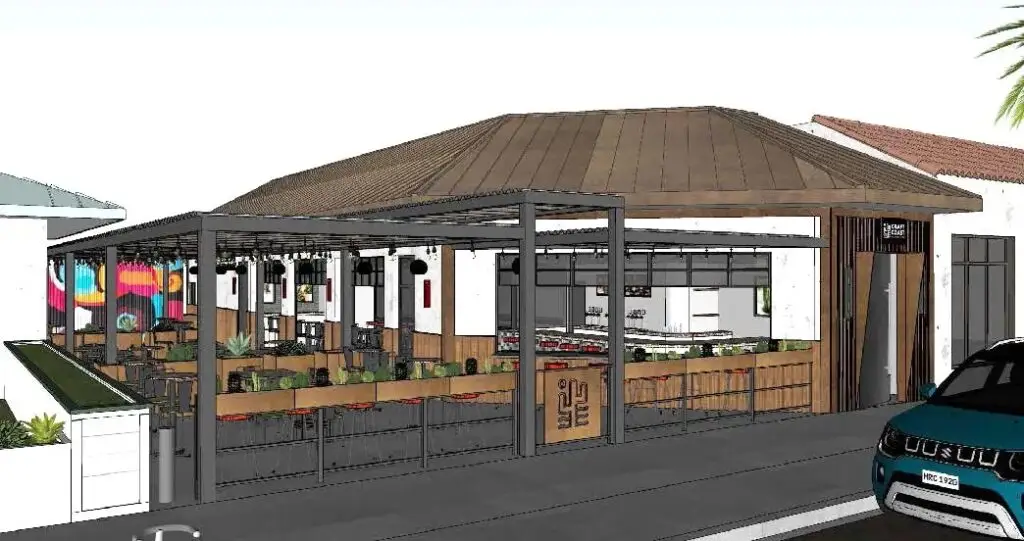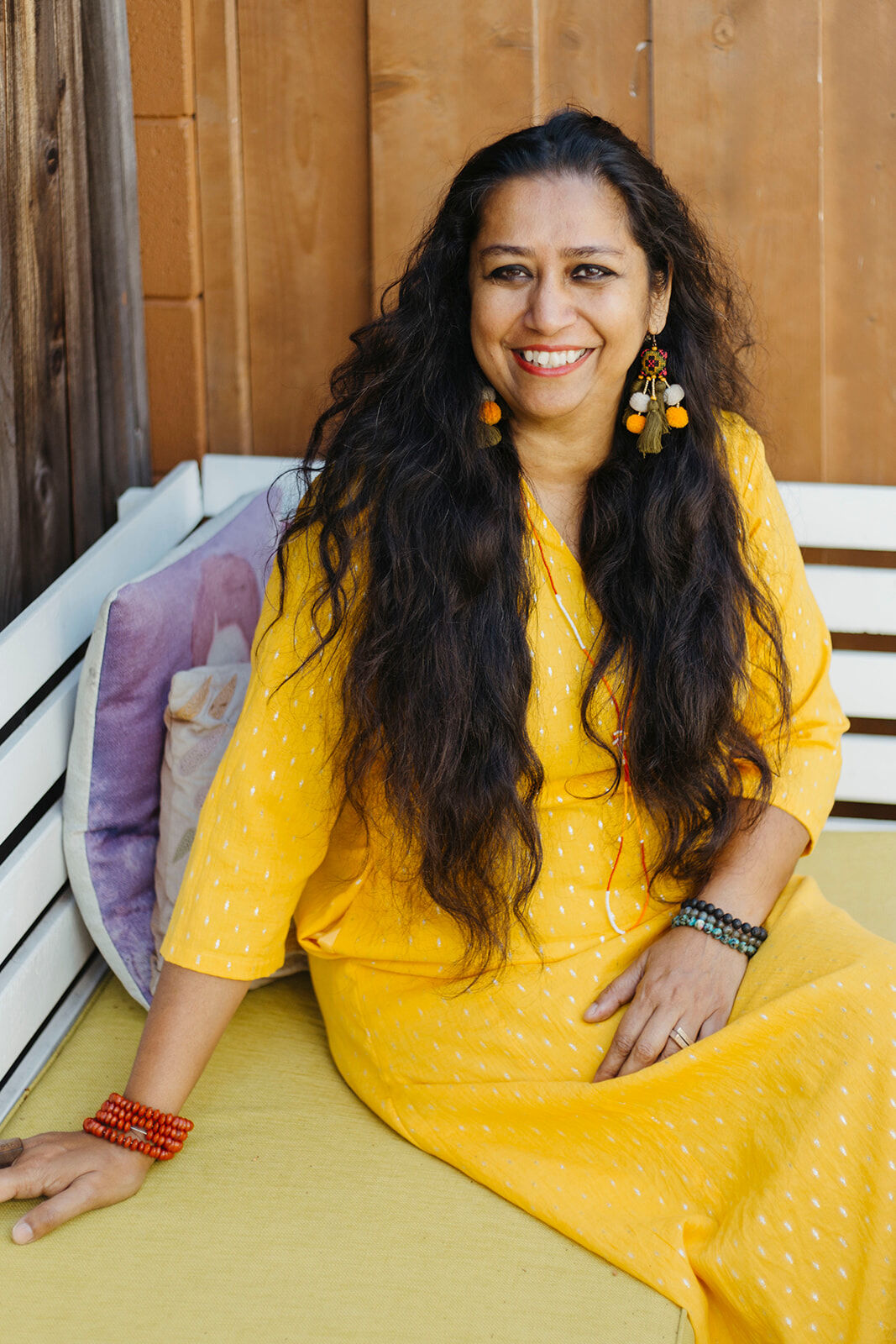
Madhushree Ghosh at her Old Town home
Photos by Kailee Winslow
Madhushree Ghosh is tired. Fresh off a red-eye flight back from New York, where she participated in a panel at the revered Center for Fiction in Brooklyn, she’s happy to be back in her Old Town home. She was there to speak about her new book, Khabaar: An Immigrant Journey of Food, Memory, and Family, a memoir (or a “collection of braided essays,” as she puts it) that also includes a focus on the way food has played a huge part in what has been an extraordinary life.
“So it’s a collection of essays, but what’s funny is that one of the first reviews that came out on Goodreads said something like, ‘I am really upset. I was hoping for recipes,’” Ghosh recalls. “Part of me wanted to react to that person to tell them they’re not my audience. I always wanted to write a collection like this, an ambitious book in the sense that people are surprised when they read it. Something that would make them ask questions like, ‘What is this?’.”
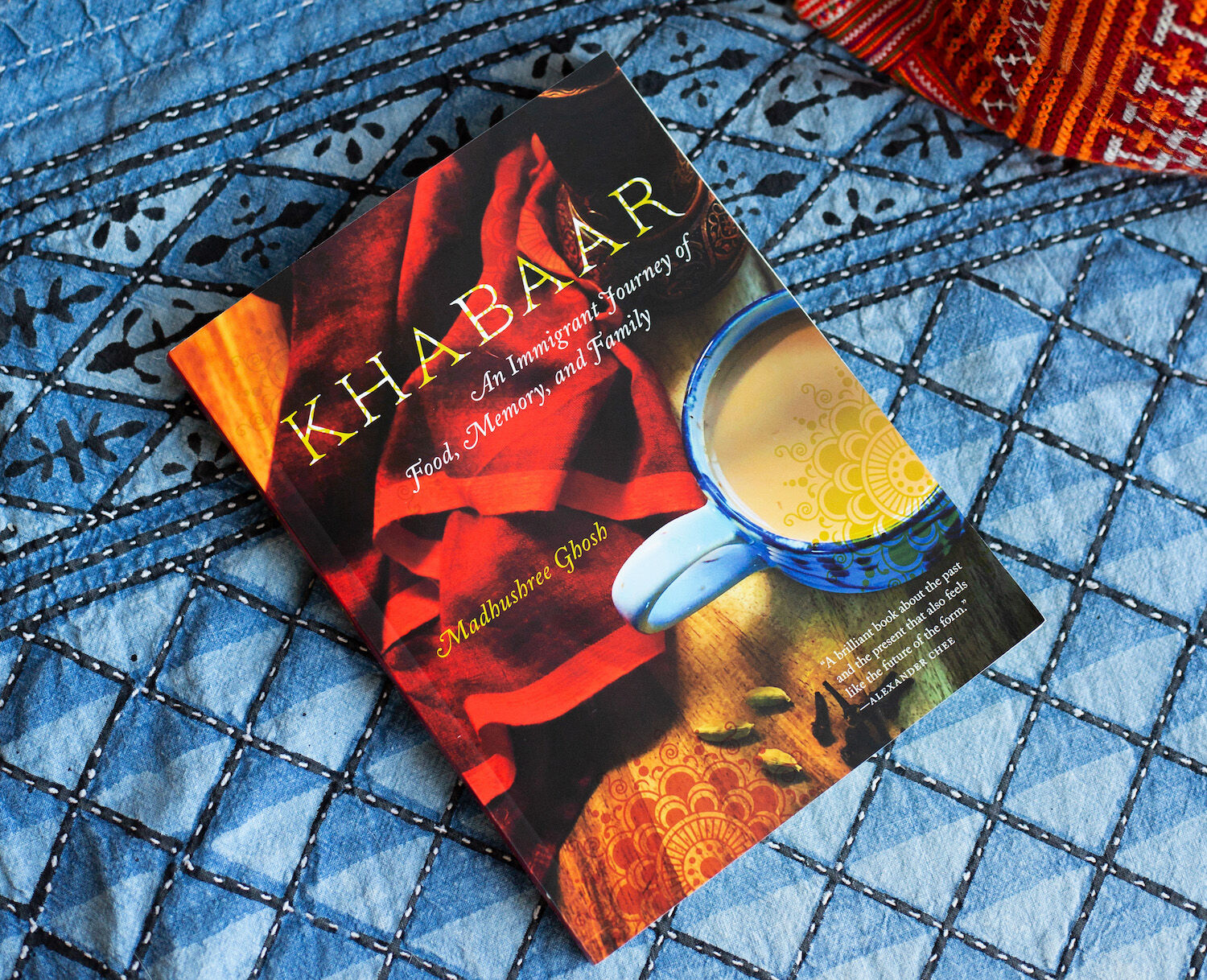
A copy of Khabaar: An Immigrant Journey of Food, Memory, and Family
Named after the Bengali word for “food,” Khabaar does just as its author intended and works as so many things at once: a memoir, a collection of food essays, a travelogue, a tale of surviving domestic abuse, a manifesto from someone with a unique and timely perspective on the American dream. She weaves the trajectory of her own journey seamlessly into commentary about the importance of food to family and community, and also explores how much of that food has been influenced by factors like colonization and exploitative labor practices. This isn’t some gushy, feel-good tale of an immigrant overcoming obstacles or a guide to Bengali-food-for-well-meaning-wokeists; it’s a book that breaks apart the meals we long to authentically experience by a women who is intent on revealing the blood, sweat, and tears that go into them.
“I could have given my publisher my memoir, which of course had food, but I trusted her and readers enough to understand what I was trying to do,” Ghosh says. “I want to talk about my parents’ journey and then my journey as an immigrant. I also wanted it to be three-dimensional, of a person who’s gone through this as well as a woman in science, a woman of color. All this in addition to talking about why and how food within the San Diego community makes you part of that community.”
Ghosh’s family is from Bangladesh, but she grew up primarily in Delhi, India, before moving to the US to study biochemistry in the early ’90s. She went on to get an MBA in global conflict management and negotiations and eventually earned her PhD in biochemistry. And while her day job is in global oncology diagnostics, she gravitated toward writing. She recalls growing up in a family filled with journalists and writers, and the time when, shortly after her mother passed away, she found a piece of poetry she’d written as a young girl that her mother had kept all those years.
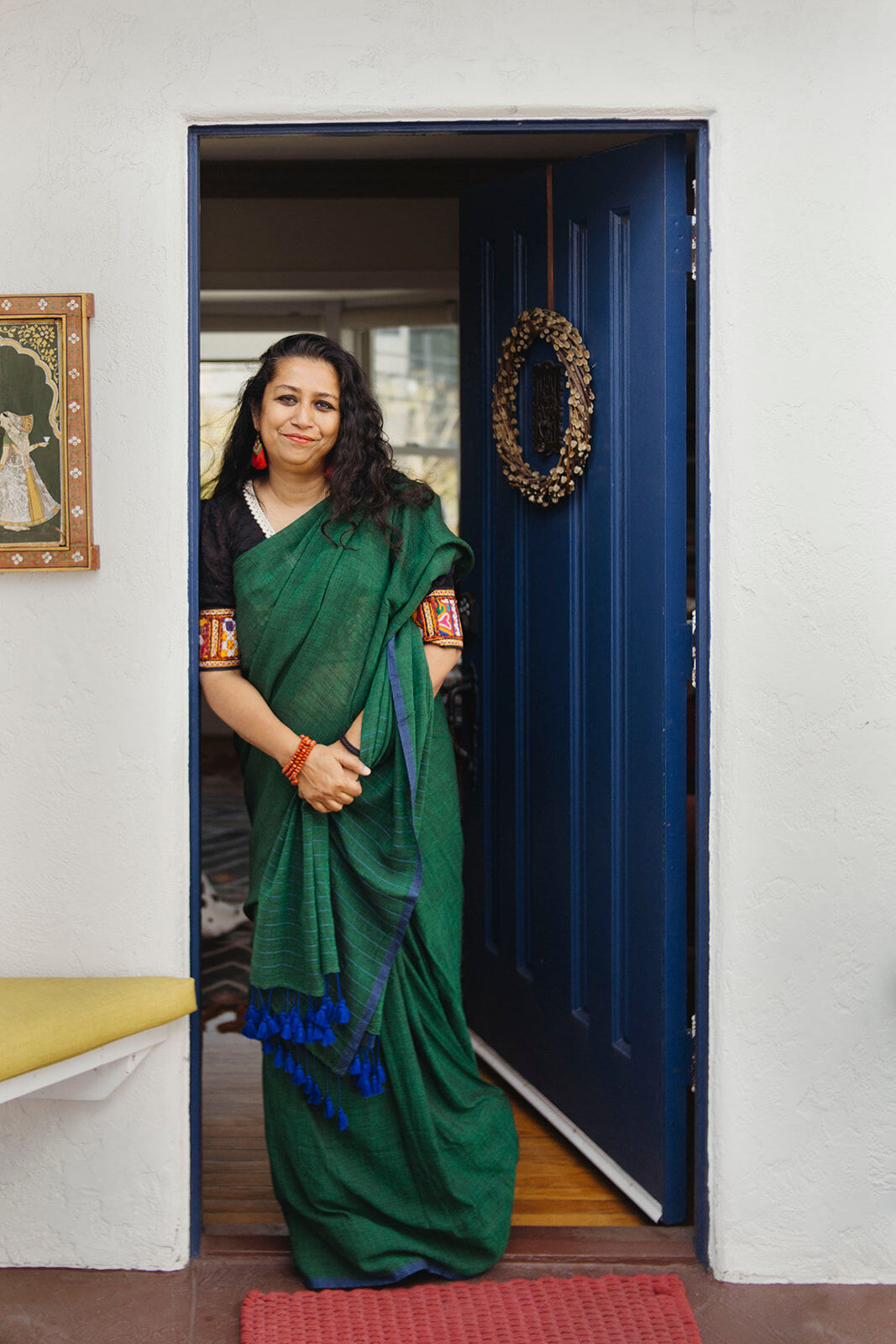
Madhushree Ghosh Profile
“It was so bad, but she had kept it,” Ghosh says. “But that’s the kind of family I come from. Everybody’s very literary. We love our books.”
Over the years, she’s immersed herself in writing, publishing pieces in The New York Times, The Washington Post, on The Kitchn, and even in The Surfer’s Journal. One of her travel essays on San Diego for Panorama was nominated for a Pushcart, one of the literary world’s most prestigious prizes. She’s currently working on another memoir and an essay collection about maverick women tentatively titled Hatke: Trailblazing Outlier Women. Asked whether she considers herself to be an outlier, given her myriad accomplishments and jobs, Ghosh says she understands how people could see her that way, but that it’s a dubious distinction.
“All my life, that’s what I’ve been called. I was the first Ghosh girl to come here, first one to get a PhD, first one to get a divorce, you name it. I’ve always been fascinated when people say I’m an outlier. What does that mean? I’m not sitting around and saying, ‘Let me do something that will shock the world.’ I don’t think that’s how outliers operate. You just do it because you don’t know any other way.”
Follow Madhushree Ghosh on Instagram at @writemadhushree
PARTNER CONTENT

